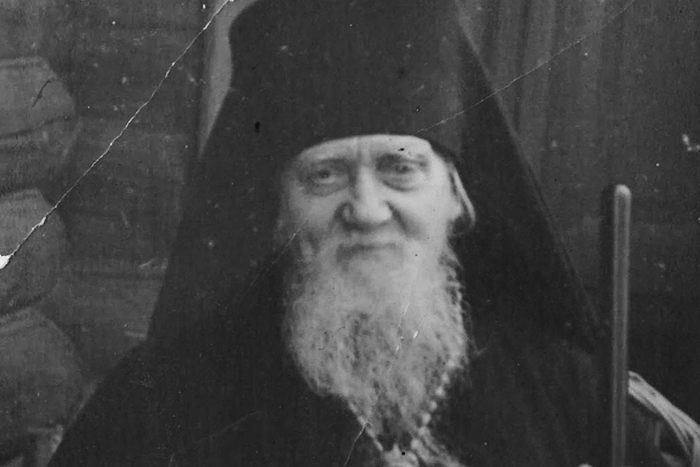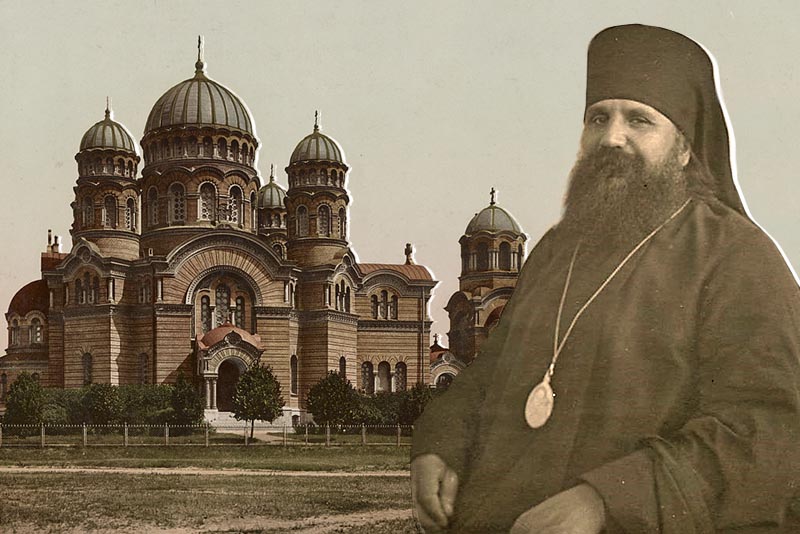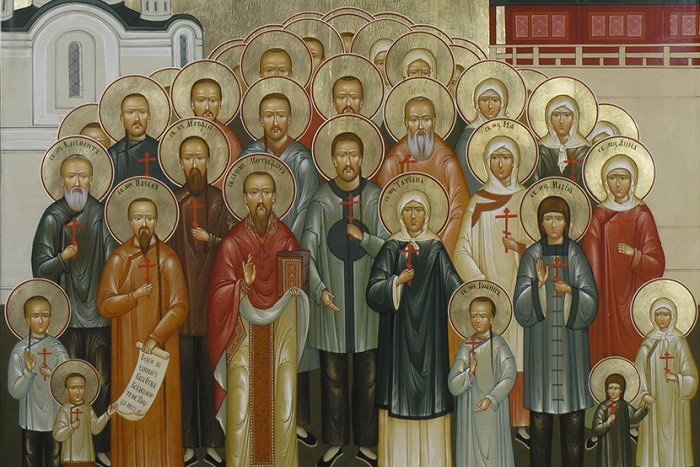
The future Holy Confessor Athanasius (Sakharov) took part in the preparation of the service to all Russian Saints in 1918 by commission of the Local Council. The service included troparia for New Martyrs. At that time, few people could have imagined what kind of persecution awaited the Church, and that Bishop Athanasius himself would be listed as one of the saints among the New Martyrs and Confessors.
The future Bishop Athanasius (Sergei Grigorievich Sakharov) was born on July 2 (O.S.), 1887, on the Feast of the Placing of the Honorable Robe of the Most Holy Theotokos at Blachernae. Sergius’s parents, Gregory and Matrona, lived in Vladimir, where the saint spent his childhood and youth.
The mother wanted to see her son become a monk, for which Bishop Athanasius was grateful all his life. As a child, he told all his peers that he would be a bishop. Studying was not easy for him, but in the end, thanks to his diligence, Sergius successfully graduated from the Vladimir Seminary and the Moscow Theological Academy. The future bishop was especially interested in liturgics and hagiology. The bishop’s liturgical books are full of notes in the margins, annotations, clarifications, and transcriptions of difficult words and passages in the texts. He wrote his first troparion while still a student of the Shuya Theological College: it was the troparion to the Shuya-Smolensk icon of the Mother of God. During his imprisonment, he composed the following molebens: For Those Who Are in Sorrows and Various Tribulations, For the Enemies Who Hate and Hurt Us, For Those Who Are in Dungeons and Imprisonment, Gratitude for Gaining Grace, For the Termination of Wars and for the World Peace, as well as a book On Prayer for the Departed in Accordance with the Regulations of the Orthodox Church.
When the Revolution occurred, Hieromonk Athanasius was thirty years old. He became a bishop in 1921. He was summoned to the GPU before his consecration and threatened with repercussions if he agreed to become a bishop.
He was arrested for the first time seven months after his consecration. According to the bishop’s own calculations, he spent only 2 years, 9 months and 2 days at the pulpit, and 21 years, 11 months and 12 days “in bonds and bitter works” (i. e., in prisons and exile).
Despite the harsh conditions of his detention, the saint continued to perform his daily services in the prison cell, in accordance with all the requirements of Typikon, strictly observed fasting regulations and always shared his parcels with other prisoners. Under no circumstances did he lose faith in God and the feeling of great gratitude to Him. Barely alive after torture, the saint would often say to his fellow prisoners, “Let us pray and praise God!” He was the first to sing, “Praise ye the Name of the Lord.” This song brought him back to life. The bishop encouraged new prisoners, “Do not lose heart. The Lord has made you suffer a little for Him in His great mercy. Thank God for that!”
Despite the fact that life in prison was very difficult and full of all kinds of deprivations, Bishop Athanasius had an amazing ability to ignore all the hardships of prison life and to find the condition of prisoners even easier than that of those who were free, “We have nothing to fear in prison. It’s better here than it is on the loose, I’m not exaggerating. This is where the true Orthodox Church is. It’s as if we’re being held here in isolation during an epidemic. Naturally, we feel some constraint. <…> The situation of those Orthodox who now carry the banner of Orthodoxy while remaining free is a lot more precarious. Help them, O Lord.”
The epidemic that the saint referred to was the Renovationism that he openly opposed. The opposition of Saint Athanasius to the Renovationist schism was not so much a struggle against heretical beliefs as a denunciation of Judah’s sin: that is, apostasy from the Church of Christ, betrayal of its saints, pastors and laymen into the hands of executioners.
In some camps, books were allowed. There is a story by E. V. Apushkina about the arrival of Hieromonk Hierax (Bocharov) in the Mariinsky camps (1944):
“The door opened. He heard the knocking of the dominoes, swear words, and criminal jargon. The air was full of blue tobacco smoke. The convoy pushed Father Hierax into the barrack and showed him a place on the bunk. The door slammed. Stunned, Father Hierax stood at the doorstep. Someone said to him, “Go over there!” When he walked in that direction, he froze at the unexpected sight. Bishop Athanasius was sitting on the lower row of bunk beds, sprawling his legs, and surrounded by books. When he looked up and saw Father Hierax, whom he had known for a long time, the bishop wasn’t surprised at all: he didn’t say hello but simply said, “Come and read the book with me! Tone so-and-so, troparion so-and-so!” – “Is it legal to do it here?” – “It is, it is! Now read!” Father Hierax began to help the bishop to carry on with the service, and the anxiety that he had experienced, all the burdens that had just crushed his soul were gone.”
The work at the camp was always exhausting and often dangerous. Bishop Athanasius was once appointed a cash collector, which was extremely difficult for him. Shortly afterwards, someone stole a thousand roubles from him, and he had to report it to his superiors as his own fault. Without investigating the case, the authorities immediately imposed heavy penalties on the prisoner.
After his release, Bishop Athanasius was forcibly sent to a house for the disabled, where the conditions did not differ much from those in the camp. It completely undermined the saint’s health.
The saint spent the last years of his life peacefully in Petushki near Moscow. He was denied legal rehabilitation. Bishop Athanasius used to receive up to 800 letters a year, and sent 30-40 parcels to those in need of help and comfort for Christmas and Easter. Saint Athanasius reposed on October 28, 1962, a date he had predicted in advance.
The day before, his last words were “Prayer will save us all”.



